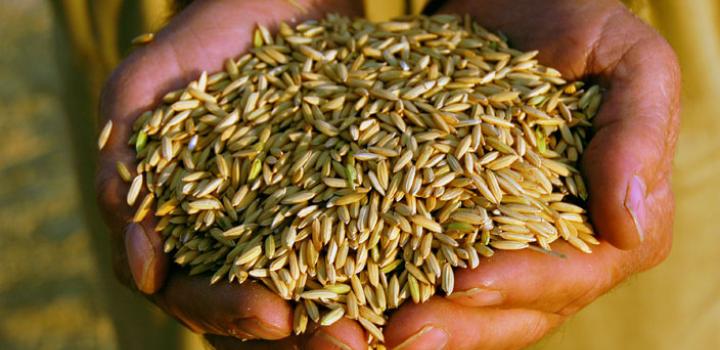Indigo Ag, Anheuser-Busch rice growing partnership saved billions of gallons of water
by May 28, 2020 3:17 pm 2,111 views

Indigo Agriculture and Anheuser-Busch have the results of their effort to produce rice grown with specific environmental attributes. The resource and emissions savings achieved in the inaugural year of the program significantly outpaced the targets set forth, according to both companies.
The partnership produced an average decrease of 23.7% water use compared to historical county averages, totaling over 2 billion gallons – or enough to supply the city of Jonesboro, Arkansas where Anheuser-Busch’s rice mill is based – for one year.
“Our partnership with Anheuser-Busch is an example of the potential of a decommoditized agriculture system to deliver value for growers and the environment while expanding consumer choice,” said David Perry, Indigo’s CEO. “We’re looking forward to expanding our partnership alongside Anheuser-Busch to meet consumer demand for climate positive products while bringing significant economic opportunities to America’s farming communities.
Nitrogen applications were reduced by 13.3%, or nearly 250,000 pounds, enough to fill ten tractor trailers. Methane production was reduced by 26.6% or the equivalent to 5,296 metric tons of carbon dioxide or the annual emissions of 1,151 passenger vehicles.
“Anheuser-Busch is proud to partner with Indigo and Arkansas rice farmers to bring this industry leading program to life,” said Jess Newman, Senior Director of Agricultural Procurement & Sustainability at Anheuser-Busch. “We are thrilled with the environmental results the Indigo growers achieved, which advance three of our 2025 sustainability goals: smart agriculture, watershed health, and carbon emissions. We are excited to continue exploring ways to deliver choices to both our growers and consumers.”
Yields were increased through the use of Indigo’s microbial products, conservation management practices were used, and grain was more efficiently transported.
The cost reductions associated with decreased water and fertilizer use from these beneficial growing practices, coupled with a price premium to reflect the specialty attributes associated with how the grain was produced, significantly improved growers’ profitability, reinforcing the effectiveness of a systems approach to de-commoditizing agriculture.
“We’re proud to be a part of this partnership with Indigo and Anheuser-Busch to sustainably produce rice. During the last growing season, we reduced input costs and earned a premium for the rice we grew for this program, overall increasing the farm’s profitability,” said Nolan Evans, a grower in Arkansas who participated in the program. “I’m excited to see what we can accomplish together in 2020.”
Anheuser-Busch is the largest end user of rice in the United States. The brewer first started using the prized ingredient in 1876, when Adolphus Busch first added it to Budweiser to add a clean, crisp taste and set the brew apart from other lagers.
The company mills approximately 2.6 million pounds of rice a day at its facility in Jonesboro, where Evans’s crop and that of the other participating growers will be delivered. Earlier this month, Indigo transported more than 53,000 bushels of rice for an Identity Preserved Beer Day. The milling experiment – an extension of the partnership and a first for the nation’s largest end user of rice – entailed calibrating the facility to a single variety of grain, allowing further insights into the energy, time, and cost savings potential of an optimized milling process.
Following the success of the pilot, Indigo Ag and Anheuser-Busch have extended their partnership through the 2020 growing season, this time expanding the scope of the program to nearly 2.7 million bushels and broadening its pool of participating growers. In the second phase, Indigo will also experiment with advanced data collection methods and remote-sensing technology such as drones, water sensors, and a mobile app to automate and enhance the project’s data collection efforts and further optimize the sustainable production of rice.
